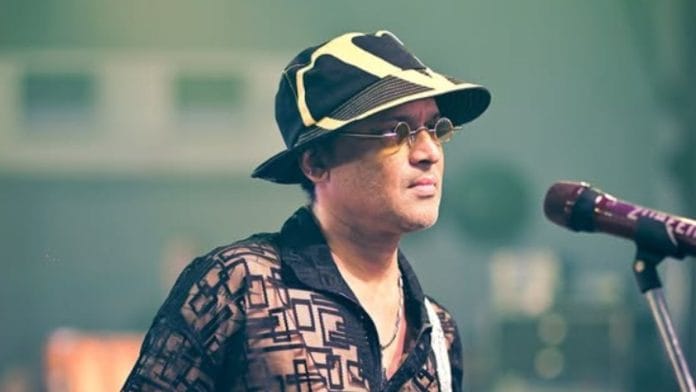Thank you dear subscribers, we are overwhelmed with your response.
Your Turn is a unique section from ThePrint featuring points of view from its subscribers. If you are a subscriber, have a point of view, please send it to us. If not, do subscribe here: https://theprint.in/subscribe/
Amar moromor Zubeen Da — our beloved Zubeen Garg — the voice of Assam and its beating heart, left us recently after a tragic and mysterious incident in Singapore, now under investigation by the Assam Police’s SIT. The news froze every Assamese heart in disbelief. People prayed it was one of his playful pranks, wishing he would suddenly appear on TV and say, “Emaan joldi nomoru.” When the truth sank in, Assam wept — not just for an artist, but for a family member. Zubeen Da was not merely a singer; he was a brother, a friend, and the voice of every Assamese home.
Born on November 18, 1972, in Jorhat, Zubeen Da was destined for music. With musician parents, melodies surrounded him from childhood. Over his illustrious career, he became a multifaceted artist — singer, actor, composer, director, lyricist, and producer — a complete creative force. His voice transcended borders, with songs in over 40 languages including Assamese, Bengali, Hindi, Nepali, Karbi, and Tiwa. He mastered 12 instruments, from the tabla and guitar to the harmonium and dotara. His Bollywood breakthrough, “Ya Ali” from Gangster, made him a national sensation. Yet, fame never uprooted him from Assam; he returned to sing for his people, proudly carrying his Assamese identity wherever he went.
What made Zubeen Da extraordinary was his closeness to ordinary people. He belonged to the masses, mentoring young singers, sharing stages, and helping newcomers without being asked. He was a proud advocate of Assamese music and culture, fusing Bihu with rock and creating a fresh sound that represented a new generation. He proved that Assamese music deserved global recognition.
Beyond music, Zubeen Da was a fearless voice of conscience. His rebellious, “I don’t care” attitude often landed him in controversies, but it also made him a youth icon. During the CAA protests, he stood firmly with students, using his voice to challenge policies he believed were unjust. He never aligned with any political party; instead, he spoke against corruption across all sides. His famous words, “Politics nokoriba Bondhu” (Don’t do politics, my friend), captured his belief in solving people’s problems, not exploiting them. Even he stood against the government’s decision to fell trees in Dighalipukhuri, Guwahati and said that if you have to cut the trees then cut me instead. Such was his love for nature; such was his fearless aura. To the youth, he was not just an artist but a symbol of courage and truth.
Beneath his fearless exterior was a compassionate heart. Zubeen Da helped struggling musicians, spent time with fans, and treated everyone as family. People fondly recall meeting him at roadside tea stalls, always humble and approachable. He embraced his flaws and never pretended to be perfect — that honesty made him even more loved. A secular soul, he often said, “Mur kunu jaati nai, mur kunu dhormo nai, moi mukto” (I have no caste, no religion; I am free). His funeral, attended by people of all faiths, reflected this universal love. An ardent animal lover, he even protested temple animal sacrifices.
When he passed away, the entire state mourned together. From villages to cities, tears flowed as his songs filled the air once again. Social media overflowed with memories, and “Mayabini” echoed across Assam. His music had always given people strength, and in his death, it united them in grief.
Zubeen Da’s legacy is monumental — over 38,000 songs across 40 languages, spanning rock, folk, and film music. He rekindled pride in Assamese identity, showing that one could be modern yet rooted in their maati (soil). His kindness was boundless: he donated concert proceeds for flood victims, supported COVID care efforts with his own building, and often said, “Ghoro le poisa kiman ahise moi nejanu, khali moi di thakibo lagibo heitu moi jaanu” i.e. He doesn’t know how much money he earned, but he knows that he needs to give; he needs to provide. Such was his love and generosity.
At 52, he left too soon. Without him, Bihu will feel quieter, yet his voice will forever echo in every celebration and protest alike. Like the Brahmaputra that never ceases to flow, Zubeen Da’s spirit will continue to inspire generations. Assam has lost her dearest son, but his music, courage, and compassion will never fade.
Jai Zubeen Da — forever in our hearts.
These pieces are being published as they have been received – they have not been edited/fact-checked by ThePrint.


